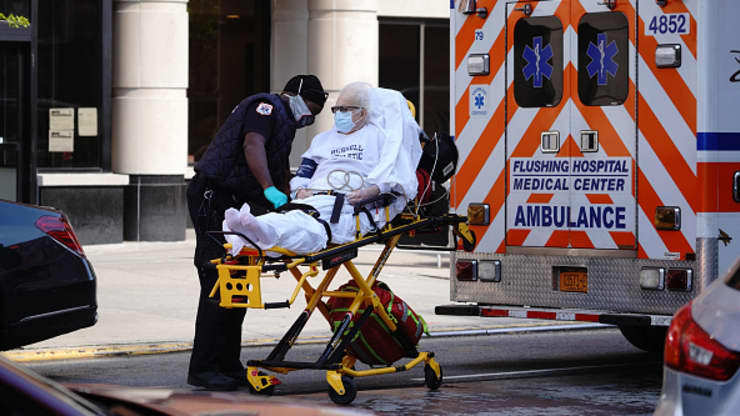New York State Gov. Andrew Cuomo is facing a storm of criticism for not being transparent with the COVID-19 death toll in nursing homes across the state. This comes after New York State attorney general, Letitia James, issued a scathing report accusing the administration of underreporting up to 50% of COVID-19 deaths.
The 76-page report alleges the Cuomo administration did this through only publicly reporting deaths of residents who died on site, excluding residents who contracted COVID-19 in a nursing home but died elsewhere. Some believe this could’ve been intentional, in an attempt to minimize the administration’s controversial March 2020 directive that required nursing homes to admit and re-admit patients with COVID-19.
On February 11th, the New York Post reported that Andrew Cuomo’s top aide, Melissa DeRosa, admitted to state lawmakers that the administration withheld data from the public in fear of prosecution and political warfare under the Trump administration: “Basically, we froze, because then we were in a position where we weren’t sure if what we were going to give to the Department of Justice or what we give to you guys and what we start saying was going to be used against us and we weren’t sure if there was going to be an investigation. … That played a very large role in this.”
In light of these damning reports, a coalition of Democrats and Republicans in New York have rallied together in backing investigations into the administration’s handling of nursing home deaths. Most recently, representative Alexandria Ocasio-Cortez joined the coalition and called for a full investigation: “Thousands of vulnerable New Yorkers lost their lives in nursing homes throughout the pandemic. Their loved ones and the public deserve answers and transparency from their elected leaders, and the secretary to the governor’s remarks warrant a full investigation.”
In a press briefing on February 15th, Cuomo expressed regret for his administration’s handling of nursing home data but insisted there was no cover-up: “The void we created by not providing information was filled with skepticism, cynicism, and conspiracy theories that furthered the confusion,” he said. “I take responsibility. We should’ve provided more information faster.” However, many are questioning the governor’s sincerity after New York Assemblyman Ron Kim–one of many outspoken democrats on the issue– alleged he received a threatening phone call from Cuomo. According to Kim, Cuomo threatened to destroy him and his career if he continued to publicly criticize the Governor.
Amid the controversy surrounding his administration’s handling of nursing home deaths, five women– four of whom worked closely with the governor– have come out to accuse Cuomo of sexual harassment and making unwanted advances. The allegations have sparked growing calls for his resignation— including some from his democratic colleagues. Prominent political figures such as Senate Majority Leader Chuck Schumer, Senator Kristen Gillibrand, and Mayor Bill de Blasio all find Cuomo unfit to govern.
Prior to the two most recent allegations, Cuomo apologized and said he didn’t know he was making women feel uncomfortable. He also denies touching anyone inappropriately and is rejecting calls for his resignation.
According to Queens College (QC) Assistant Professor of Urban Studies Natalie Vena, the culmination of the nursing homes scandal and the growing number of sexual misconduct allegations could taint Cuomo’s political future: “Now we have to add the sexual harassment allegations into the mix. I do think all of this hurts his shot at reelection, especially since I believe more and more people are going to come forward about his professional and personal misconduct. He is still very powerful, though, and I am not sure what voters will ultimately do with this information. But I think a skillful challenger could use the marks against him to great effect.”
In the early months of the pandemic, Cuomo was praised for his leadership and response to COVID-19. He won an Emmy, and published a best-selling book entitled “American Crisis: Leadership Lessons from the COVID-19 Pandemic.” Now, as he hopes for re-election in 2022, only time will tell how much this tarnishes his reputation as a national leader during the pandemic.











